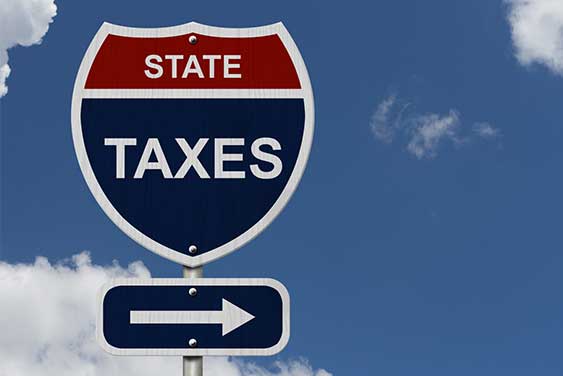Wayfair Decision Marks Tax Change; Questions Remain

The United States Supreme Court in June ruled in South Dakota v. Wayfair, Inc. that states can collect sales tax on purchases made from retailers that don’t have a physical presence in the state. The ruling overturns decades of legal precedence and is quite significant given the increasing role of online retailers in the modern economy. E-commerce accounted for approximately 9 percent of all US retail sales in 2017, and that number is quickly growing.
While state and local budget and finance officers hailed the ruling, the near-term impact on state and local budgets is likely to be limited. According to a recent article on Route Fifty, the US Government Accountability Office estimated that if states and local governments had been able to collect sales tax from out-of-state sellers, the total revenue gained would have been about $8 billion to $13 billion, which would have been equivalent to only about 2 to 4 percent of total state and local revenues. Nonetheless, online retailing is expanding rapidly, its rate of growth (up 16 percent in 2017) far outpacing total retail sales growth (up only 4.4 percent in 2017).
Despite the ruling by the Supreme Court, there are still many questions regarding how state and local online sales tax collection will end up working in practice. Even though the decision stipulates that a state can collect tax on sales made to its residents by retailers without a physical presence in that state, the Supreme Court did not provide a real roadmap on how to go about doing so while remaining within the bounds of other commerce laws. South Dakota, for instance, has a threshold whereby out-of-state retailers that have over $100,000 in sales, or over 200 separate transactions, in the state annually are required to pay sales taxes. Critics of the ruling envision a scenario in which states and localities enact a patchwork of their regulations regarding online sales, creating an onerous scenario where retailers might have to ensure they comply with hundreds or even thousands of state and local tax laws.
In fact, there has already been pushback against the ruling in Washington, with numerous legislators voicing concerns and calling for Congress to act to put at least a temporary halt on any expansion of online sales tax collection by states and localities.
The case serves as a good reminder of the challenges that face state and local finance officials. Even in the wake of an instance such as the Wayfair ruling, which on its surface looks like a victory for states and localities, questions and uncertainties abound. One thing that remains certain is that IC System continues to be a trusted government bad debt collection partner, providing third-party collection services to numerous government agencies across a wide range of account types.
Need collection help?
Call us at 1-800-279-3511 to REQUEST PRICING!
About the Author: Ben Fisher
Ben Fisher has been with IC System, one of the largest receivables management companies in the United States, since 2013. He has honed his extensive industry knowledge through his varied roles for the company within departments such as operations, client service, and marketing.










